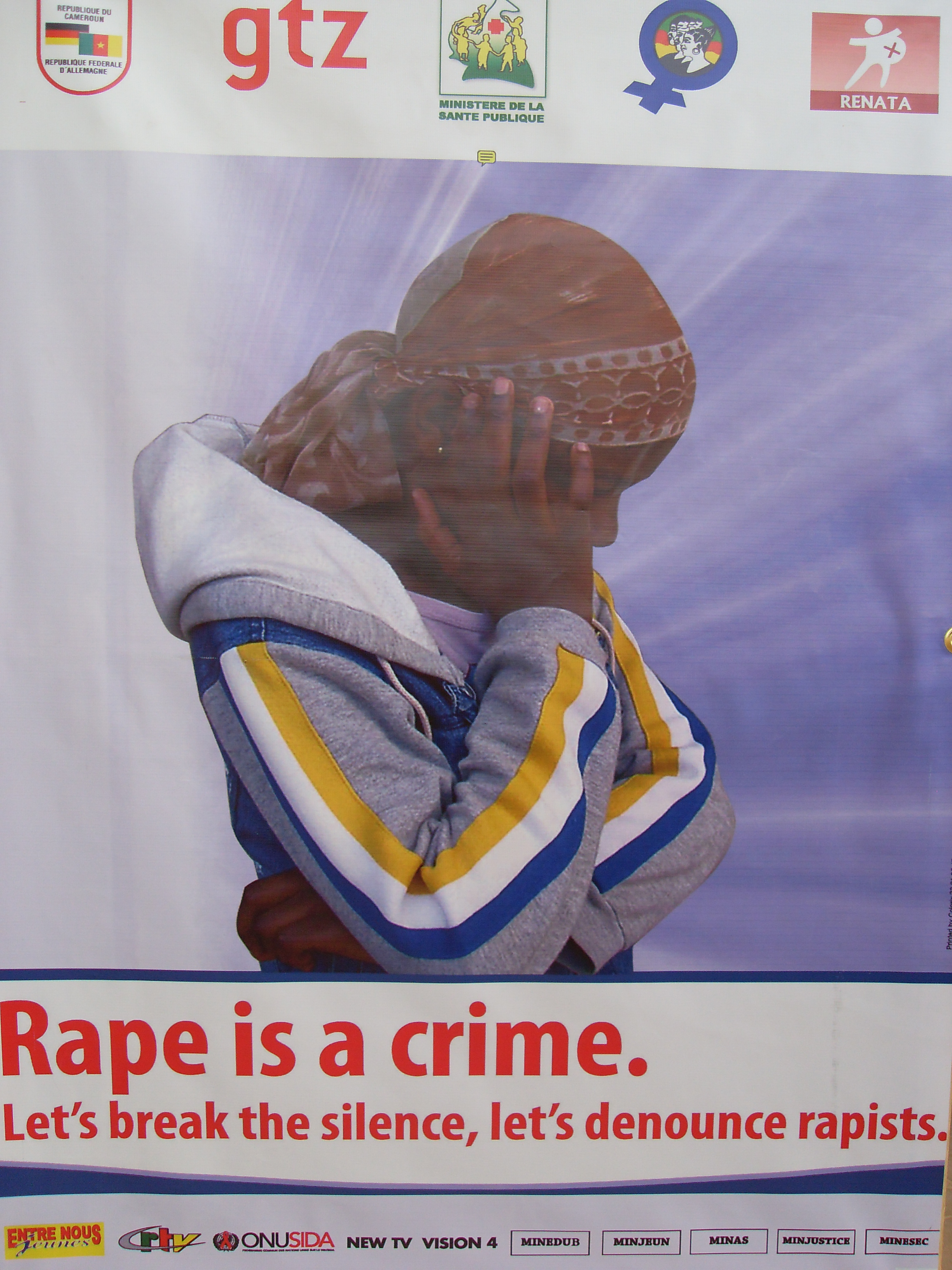Some 200 rape survivors gathered on 28 May in the capital Yaoundé, several of the women and girls telling their stories during the campaign’s opening ceremony.
“From now on we are going to speak publicly about rape so it will no longer be a taboo subject in our society,” said Olivia Bikoe of RENATA (Réseau National des Associations de Tantines), a local NGO that supports young mothers and one of the campaign’s organizers.
Madeleine, 24, told IRIN she was raped for five years from the age of eight by a neighbour in his 20s. Like many of the women and girls at the ceremony, she said for years she thought she was guilty of something; only in time and by discussing the issue did she realize otherwise.
As part of the campaign – led by the German development organization GTZ – women and girls who have been raped will be encouraged to talk about it in schools and in the media.
Organizers said the campaign is aimed in part at calling society’s attention to rape and incest, which they say are on the rise in Cameroon.
Nearly one-fifth of the some 432,000 people raped were raped by a family member, according to the report by GTZ and the Health Ministry, based on interviews with 37,719 women across the country.
Flavien Ndonko, anthropologist and head of GTZ’s HIV/AIDS programme, told IRIN rape has increased sharply over the years. “In the 1970s cases of rape were extremely rare – 0.1 percent of women and girls. But since the 1980s we are seeing an explosion of sexual attacks, targeting adolescents in particular.” The study showed the average age of those raped is 15 years.
Ndonko said it will be important to further examine the phenomenon to understand why the increase.
In Cameroon rape is a crime punishable by up to life in prison but only about one in 20 rapists is convicted, largely because rape is trivialized in society, Ndonko said.
rk/np/aj
This article was produced by IRIN News while it was part of the United Nations Office for the Coordination of Humanitarian Affairs. Please send queries on copyright or liability to the UN. For more information: https://shop.un.org/rights-permissions





